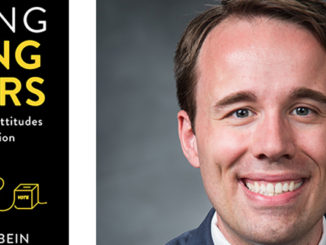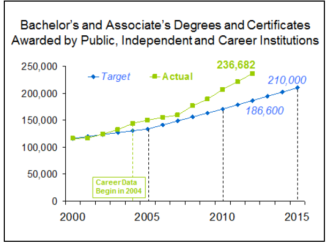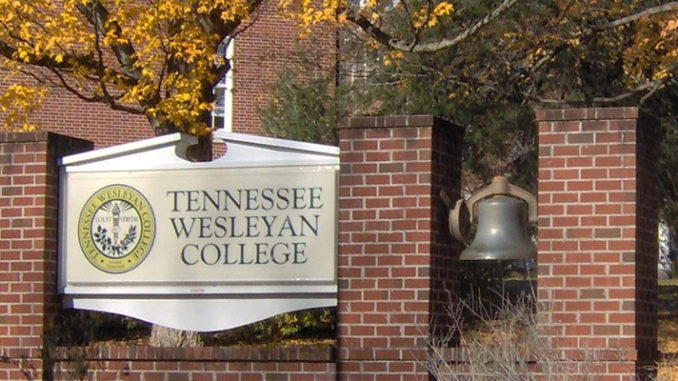
How Tennessee is making Bernie Sanders’ favorite education idea a reality.
Politically and culturally, the capital of Moore County is about as red-state America as you can get. Its rolling green hills are dotted with farmhouses, old barns and beaten-up trucks; the tiny town square features two barbecue joints and a “Dixie Outfitters” shop hawking Confederate memorabilia. Donald Trump drew 80 percent of the vote, and the county went Republican for the four elections before that.
“It’s a very conservative area,” said Ray Tucker, president of Lynchburg’s Chamber of Commerce. “Farmers and all are typically stand-on-your-own-ish. They don’t believe in social programs. They believe in ‘You eat what you kill.’”
So it might come as a surprise that at Motlow State Community College’s Moore County campus, every local attends for free. In fact, anyone from Tennessee can go for free, courtesy of the state government.
The whole idea of free college in America is a linchpin of progressive politics, pushed by Bernie Sanders in his 2016 campaign and endorsed by any candidate trying to burnish his or her progressive credentials. In Washington, it’s a key item on House Democrats’ wish list for higher education. But as Republicans nationally have grown increasingly hostile toward universities they see as elitist, Republicans in Tennessee have gone precisely the opposite direction.
The state’s free-college program, called Tennessee Promise, has been offering two years of tuition-free community college or technical school to all high school graduates, regardless of income, since 2014.
Since then, it has boosted graduation rates and grown in popularity every year. It inspired President Barack Obama’s free community college push in 2015 and provided a model for a handful of other states that have launched free-college programs of their own, including New York, Oregon and Rhode Island, though few go as far as Tennessee’s. The results here have been so promising that the state’s conservative Legislature decided to double down, expanding free community college beginning last year to all adults, regardless of income, who don’t already have a credential. The program has been wildly popular: The state’s higher education commission had anticipated just 8,000 adults would apply for the expanded program; 33,258 did. Nearly 15,000 of them enrolled in the first semester.
It might seem odd that a red state would pioneer an idea more associated with lefty politicians. But the story of Tennessee Promise shows that there can be significant bipartisan agreement on education if the policy is framed right. And its success holds lessons for not only how to talk about education in America, but how to bridge political divides by reaching out to those who feel left behind, in rural and urban America alike.
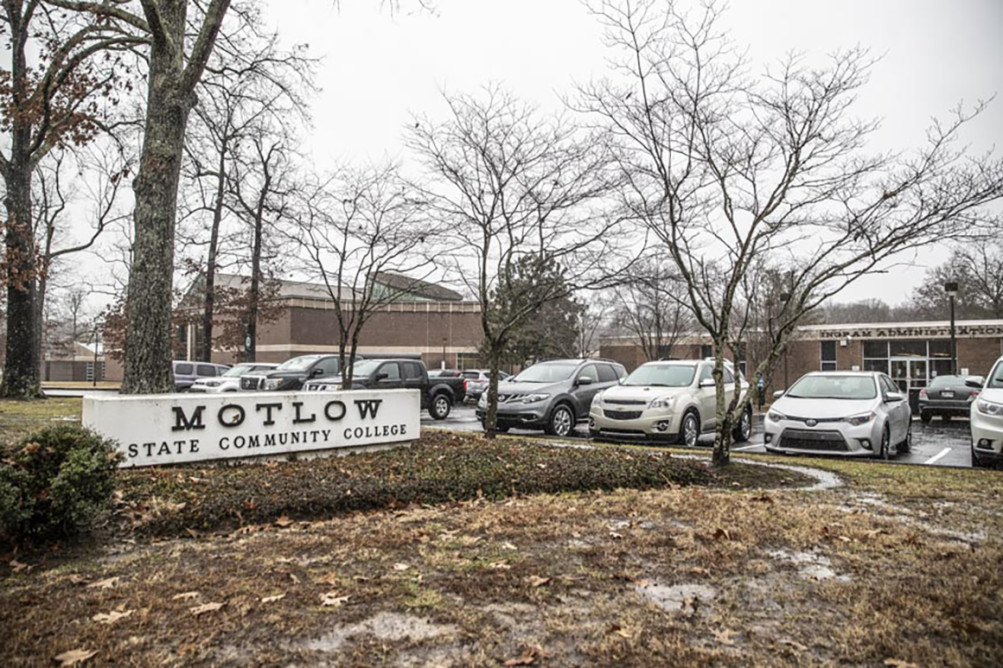
How Tennessee did it is a story of economic necessity sparking a very locally driven innovation; it’s part policy, and part politics. Republican Gov. Bill Haslam, the program’s chief proponent, sees it as a pragmatic response to decades of failed economic development policy – and an example of his own party being willing to step up to solve a problem more talked about than tackled.
“The income disparity deal is real in our country,” Haslam said in an interview, “and the question is, `What are we going to do about it?’”
The radical-sounding idea of Republican free college was the brainchild of Haslam, a billionaire businessman who became one of the nation’s wealthiest governors when he took office in 2011. Haslam realized soon after he was elected that Tennessee’s workforce was significantly lacking.
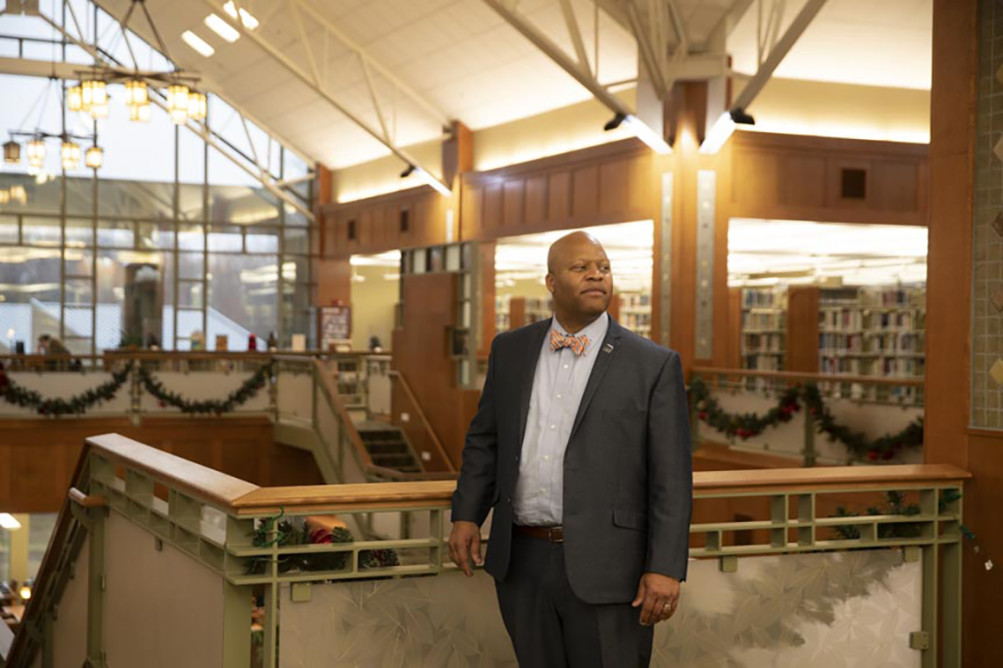
Michael Torrence has been president of the community college in Moore County only since May, but he is already greeted like an old friend at the Barrel House, a barbecue joint on the square in Lynchburg known for its “pulled pork on crack” sandwiches. The staff all knows him by his first name. He’s been a staple on the square and elsewhere in town since he arrived, trying to gin up excitement for the new free college program.
“You can get a lot of things solved when you have a barbecue sandwich with someone,” Torrence said. “We’re talking about changing a culture and letting our kids know they’re as smart as any kid in America.’”
Torrence learned quickly how big a hit free college is. Information sessions for adults about Tennessee Reconnect were so crowded that the college had to start an RSVP system to make sure they could fit everyone interested. More than 1,600 people had applied at Motlow State Community College by June, many hoping a degree will give them a shot at a better job.
The truth is that there aren’t many options for work in Moore County. For many, the best option is a job at Jack Daniels – the biggest employer in the area, with some 400 employees. It pays better than any other business in the county, and several around it, but it’s not easy to get into.
Moore County residents know there are manufacturing jobs across the county line, but for many they’re out of reach, as they increasingly require technical expertise. As it’s become apparent how much more is required to be qualified for those jobs, unemployment has come to feel personal, both for families and educators. “We know whose grandson doesn’t have a job,” said Terri Bryson, a vice president at Motlow State. When there’s an opening at a manufacturing plant, like Yorozu Automotive about 45 minutes from Lynchburg, “that is painful not to make that match,” she said.
There’s also the tourism industry. Drawn mostly by whiskey, hundreds of thousands of tourists descend on Lynchburg each year. That has made the area fertile for small businesses, like restaurants, shops and a few up-and-coming wineries. But even the smaller businesses in town need workers with certain qualifications, said Tucker, the Lynchburg Chamber of Commerce president. He recently started a vineyard, but said he had to look as far as Nashville to find someone who had enough business knowledge to help him run it. He’s heard similar complaints from other business owners.
“We have to bring people in from outside areas, which we should not be doing,” Tucker said. “We want people who are invested in the community. We want somebody who is homegrown if possible.”
That’s the point of the free college program: To get more Tennesseans the credentials they need to take the jobs that crop up. On that front, it’s shown early promise. The state’s college-going rate jumped 5 percentage points the first year it went into effect. Tennessee now leads
the nation in completion rates of the application for federal student aid – a closely watched indicator of likely college enrollment. Students who attend on the Promise program are graduating at twice the rate of their peers. And more than 60 percent of them are returning year-to-year – a rate more than 20 points higher than other students. It’s still too early to know, however, whether it will have the employment results state leaders hope it will.
Still, Moore County officials are betting that a more educated workforce will lure some of the companies moving into the region to set up shop in Lynchburg – especially distribution centers and auto manufacturers, which have moved in to Tennessee in large numbers.
“You’ve got mom here with three kids – the last thing she wants is her three kids moving to Louisville, Kentucky, or Chattanooga,” Tucker said. “They’re wanting there to be opportunity at home, versus going out to other places to be successful.”
In Memphis, half a state away from Lynchburg, Mayor Jim Strickland has been making the rounds of the city’s churches, preaching a similar gospel, one that works as well with the city’s African-American residents as it does in the state’s deep red heartland: there’s a road out of poverty, a path to prosperity. That path is community college. And it’s free.
Memphis is one of America’s poorest urban areas, with more than a quarter of residents living below the poverty line; 64 percent are African-American.
There are 15,000 open jobs in the city right now, Strickland’s spiel goes. Memphis is among the nation’s biggest hubs of medical device manufacturing. Its hospitals need workers, as do distribution companies like FedEx.
“Any city I know of is struggling on workforce development. It is now the No. 1 tool for recruiting,” he said. “I came into office 2½ years ago thinking it was incentives … And 10 years ago, five years ago maybe, it was incentives. But now it’s workforce development.”
Celeste Riley, a 46-year-old mother of seven, is working toward a teaching credential at a community college in Memphis on the Reconnect pilot program. She used to work at Target but decided to go back to school when she saw the size of the raise she got one year: 10 cents.
“I was like, I’m going to be working here 10 years and make a dollar more?” she said. “When you don’t have a degree, you don’t make much money. You just don’t.”
Questions remain about how Tennessee’s free college programs will play out in the long run. There’s still limited data on Promise, the program for high school graduates, and adults have been able to attend on Reconnect statewide for only one semester.
Some have questioned whether it is wise for the state to send students a check to go to community colleges, which have abysmal graduation rates, rather than helping them attend four-year universities that do a better job getting students degrees – bachelor’s degrees at that, which tend to make more money.
Just 22 percent of the high school graduates who enrolled in Tennessee Promise in 2015 had graduated two years later. Nearly half – 48 percent – had dropped out. Those figures may seem bleak – Haslam has called them “embarrassing” – but they’re actually better than national numbers. Just 13 percent of community college students nationally graduate in two years, according to the National Center for Education Statistics.
Haslam remains convinced that two-year schools are the way to go, in large part because they’re more directly connected to the workforce. Technical schools in the state have a 90 percent job-placement rate, he said. Community colleges and technical schools are “speed boats compared to the battleship” of four-year universities. They can adapt quickly to the needs of industry. For example, the state is running manufacturing courses out of Nissan’s new campus in Smyrna – one of the largest auto plants in the nation.
Others have wondered whether the money would be better off directed toward low-income students, who need help with more than just tuition. Books, living costs, child care all add up. A report from the Institute for Higher Education Policy last year said Tennessee’s free college program does “little to remove affordability barriers for low-income students, and instead allocate[s] limited funding to middle- and … high-income students.” Another report, by the left-leaning Education Trust, had similar criticisms, noting tuition and fees account for just 20 percent of the average cost of community college nationally. That means free tuition does little to help lower-income folks with the other 80 percent of the costs of college.
But those criticisms don’t resonate with believers like Mike Krause, the state’s higher education chief, who says bearing more of the costs for low-income residents would likely be politically unrealistic because of the price tag. Tennessee lawmakers have been convinced the program is worth it in large part because of its low cost to the state. Krause is convinced free college will be “seismic,” and points to the massive flow of applications for Reconnect as early evidence – 22,000 adults, more than half of whom make less than $40,000 a year currently. More than a quarter make less than $25,000 a year.
The program is promoted as a hand up out of poverty. Every food stamp counselor in the state has been trained to tell their clients about Reconnect, “to say let’s also talk about the next step where [food stamp] benefits won’t be necessary,” Krause said in an interview.
Other states are taking note. Krause said he gets calls regularly from them – many of them red states.
“I really think we’ll be able to fundamentally alter our state,” he said.
Benjamin Wermund is an education reporter for POLITICO Pro.


